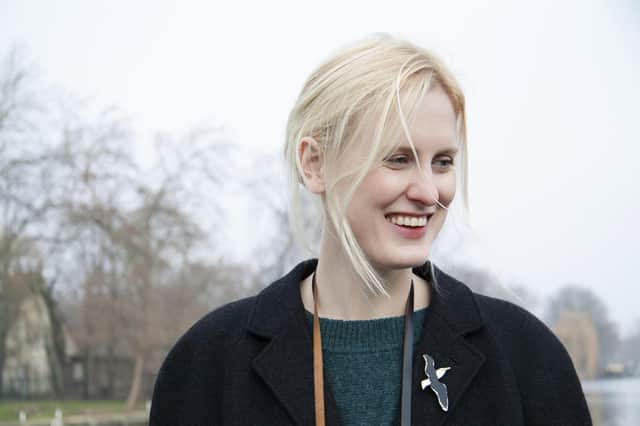Edinburgh International Book Festival round-up: Katherine Rundell | Amy Liptrot | Ian Rankin


“Was there,” John Donne once asked in a sermon, “ever any man seen to sleep in the cart between Newgate, and Tyburn, between the prison, and the place of execution?” And before his congregation could form the thought “Obviously not” he was tearing into them, arguing that most people are mentally asleep “from the womb to the grave”.
The question of how to awaken us to our fullest possible life, said Katherine Rundell yesterday morning, is at the heart of Donne’s work, and in an intellectually sparkling hour she explained what makes him “the greatest poet of desire in our language.”
Advertisement
Hide AdFor starters, there’s his own use of language. Not just the 350 words he introduced to the language (including the preface “super”), but a choice of imagery (fleas, fish, Newfoundland) far beyond the cliches of love poetry. That, she argued, combined with a similarly original metre, makes his work slip easily into the modern mind even though his own times were so radically different to ours.
How different? Well, she said, he probably saw his great-uncle hanged, drawn and quartered, while his own younger brother died aged 19 of an illness contracted in the Tower of London, where he’d been sent as the victim of what might well have been a Jesuit plot. But despite that, despite the deaths of six of his children and his own recurring illnesses, he remains the great poet of human potential. And how could you not love a man who writes his most famous lines about no man being an island at the very moment when he is convinced he is dying?
Meanwhile, back in the present, just as film crews are about to head off to Papa Westray to bring Amy Liptrot’s first memoir to life on the big screen, she herself appeared at the book festival to talk about her second, The Instant. Occasionally, she seemed almost apologetic about what might sound like self-obsession, yet to me, nothing could be further from the truth: instead, her new book is blazingly original in the way in which she writes about love in a digital age. While many writers tend to be negative about the internet, Liptrot harnesses its amazing potential to a very human story, from working out the exact position in the sky of the gibbous moon shining into her Berlin flat to the precise location of traffic islands in the city on which she planned, a part of a deeply romantic (but sadly doomed) project to meet her lover.
Finally, what’s left to say about Sir Ian Rankin? Well, the first thing might be that the knighthood definitely hasn’t gone to his head, not that there was much chance of that in the first place (“Aye, but you’re still any wee brother,” his sister said when he broke the news). Secondly, that the experience of time-travelling back to the 1970s for The Dark Remains, in which he completed William McIlvanney’s half-written story of Laidlaw’s first case, seems to have made him at least marginally more inclined to contemplate writing about how Rebus got started in the first place.
We will, however, have to wait for a bit longer than usual to find out, as he is going to take a sabbatical next year. His wife Miranda is thinking about taking him to Japan, or maybe a road trip across Italy or the US. “Walking from my flat to the Oxford Bar would be enough for me,” he said, “but she has big plans and it is my job to go along with them.”